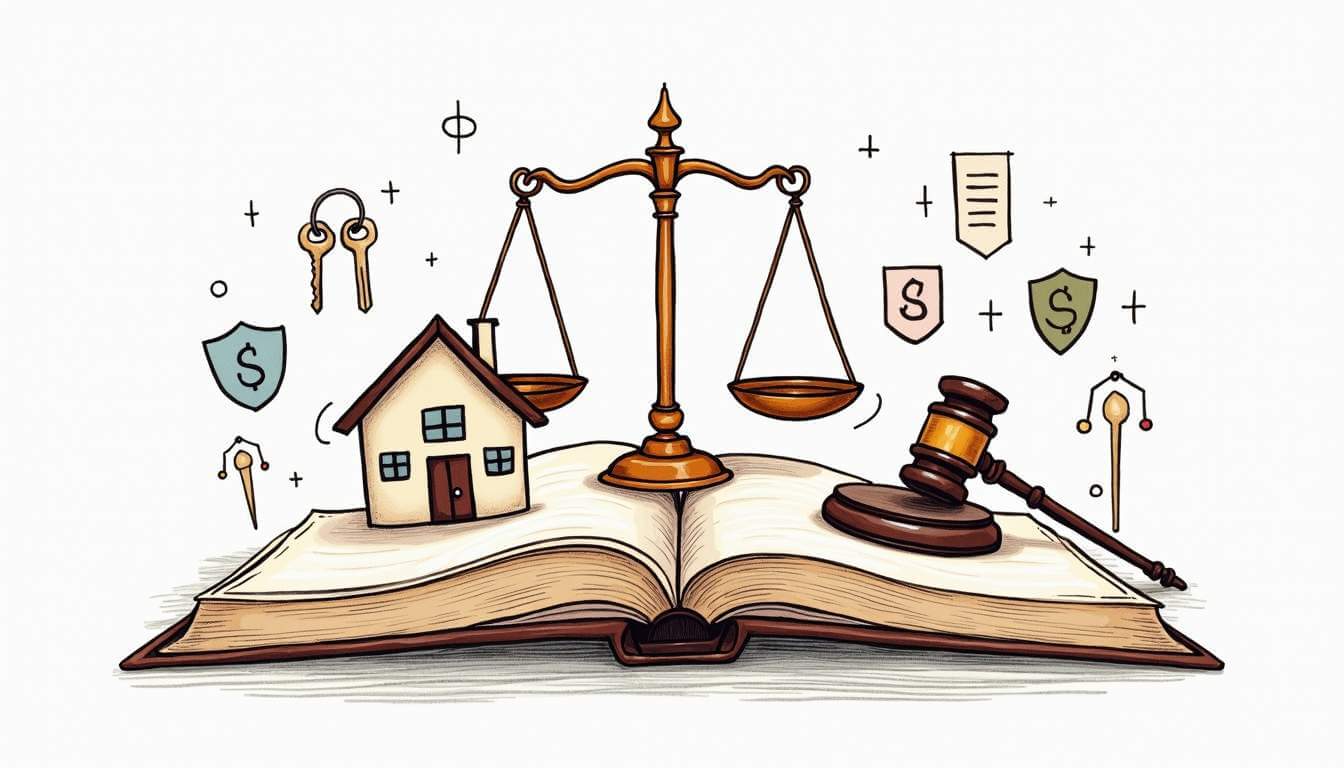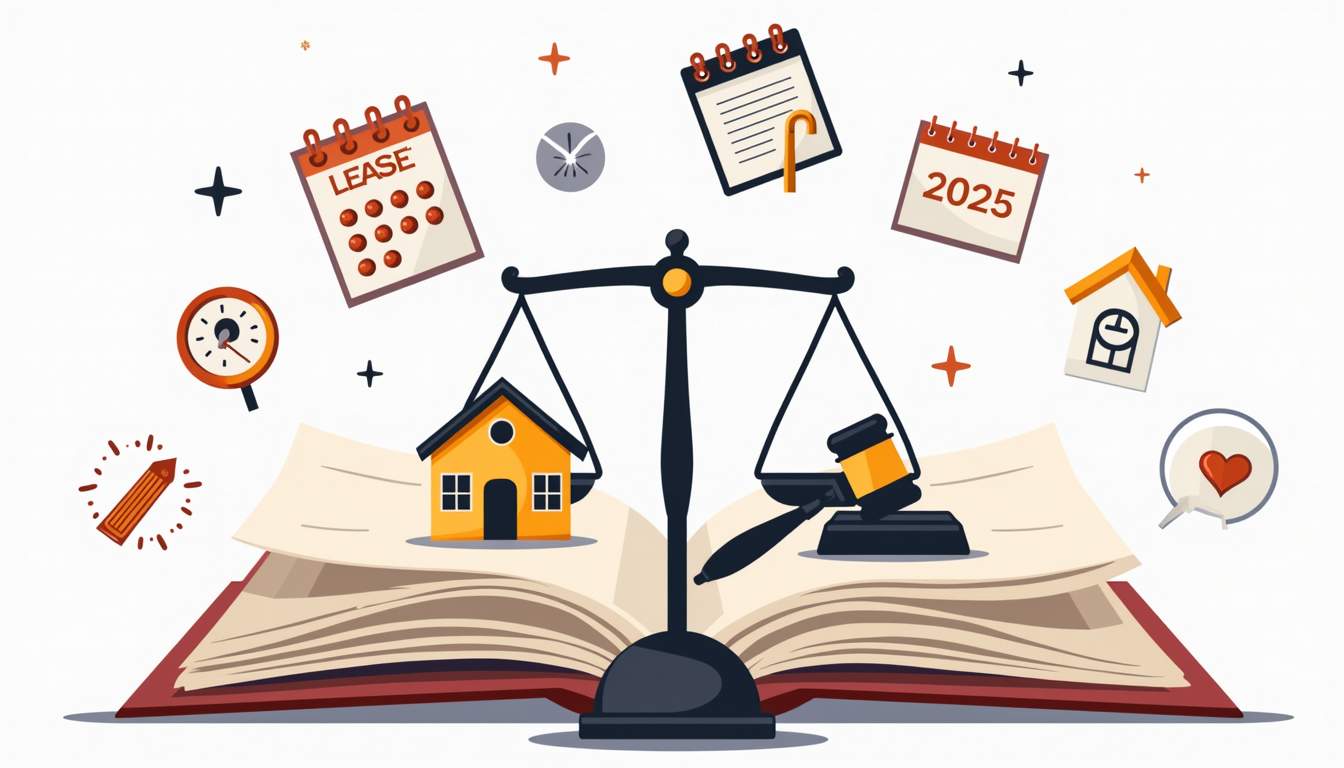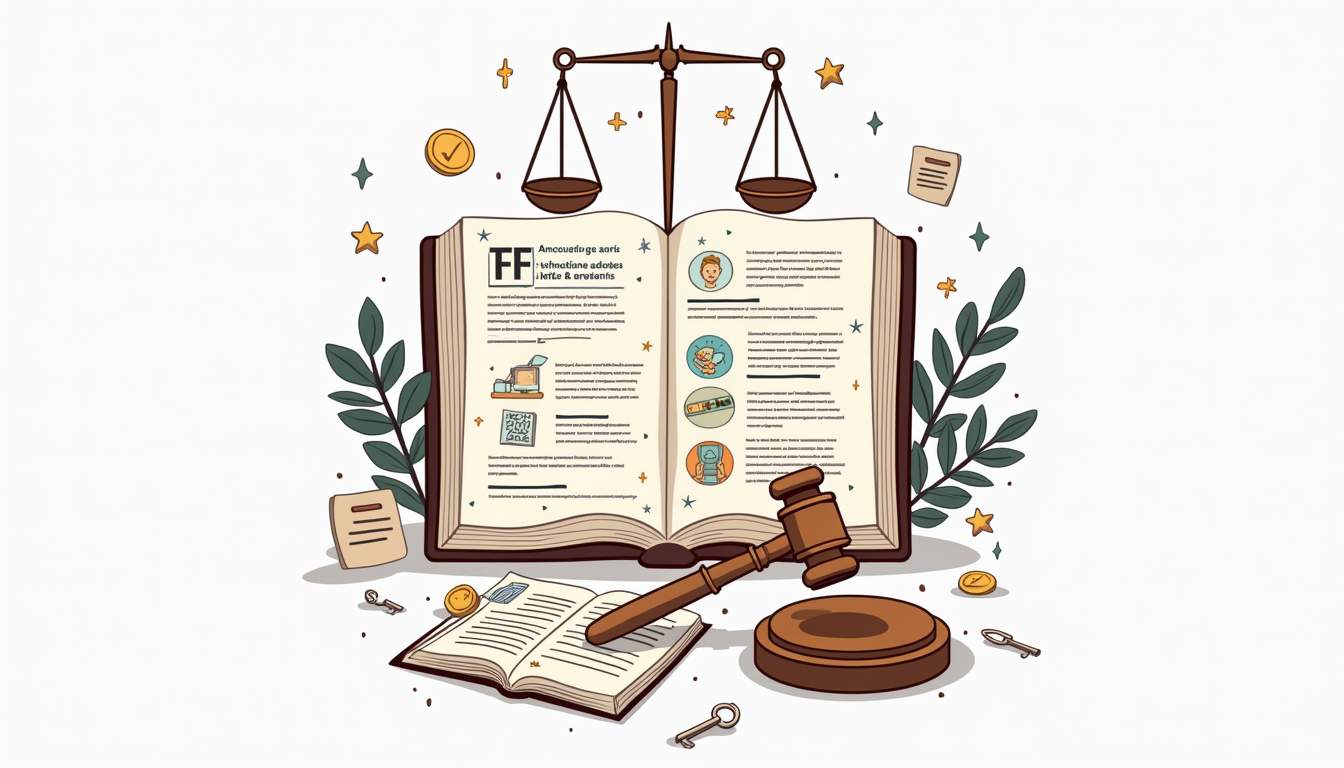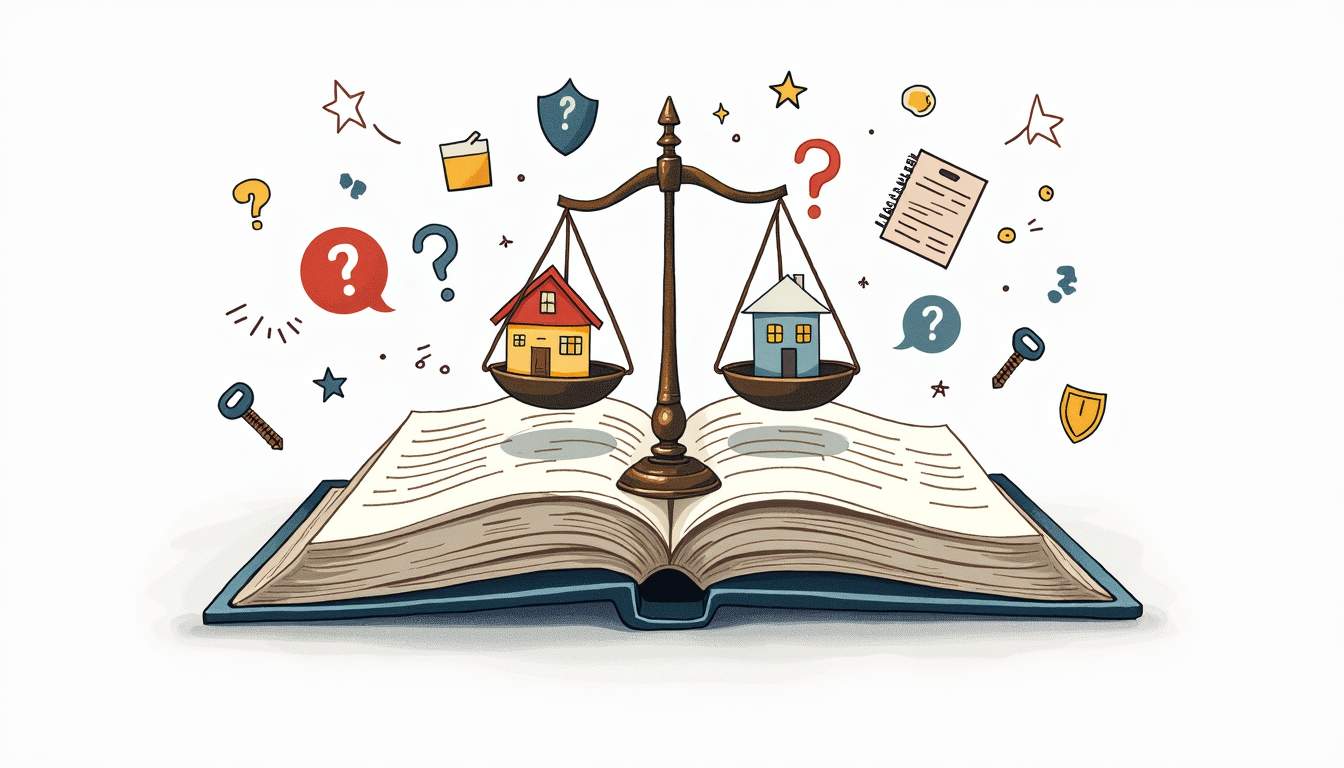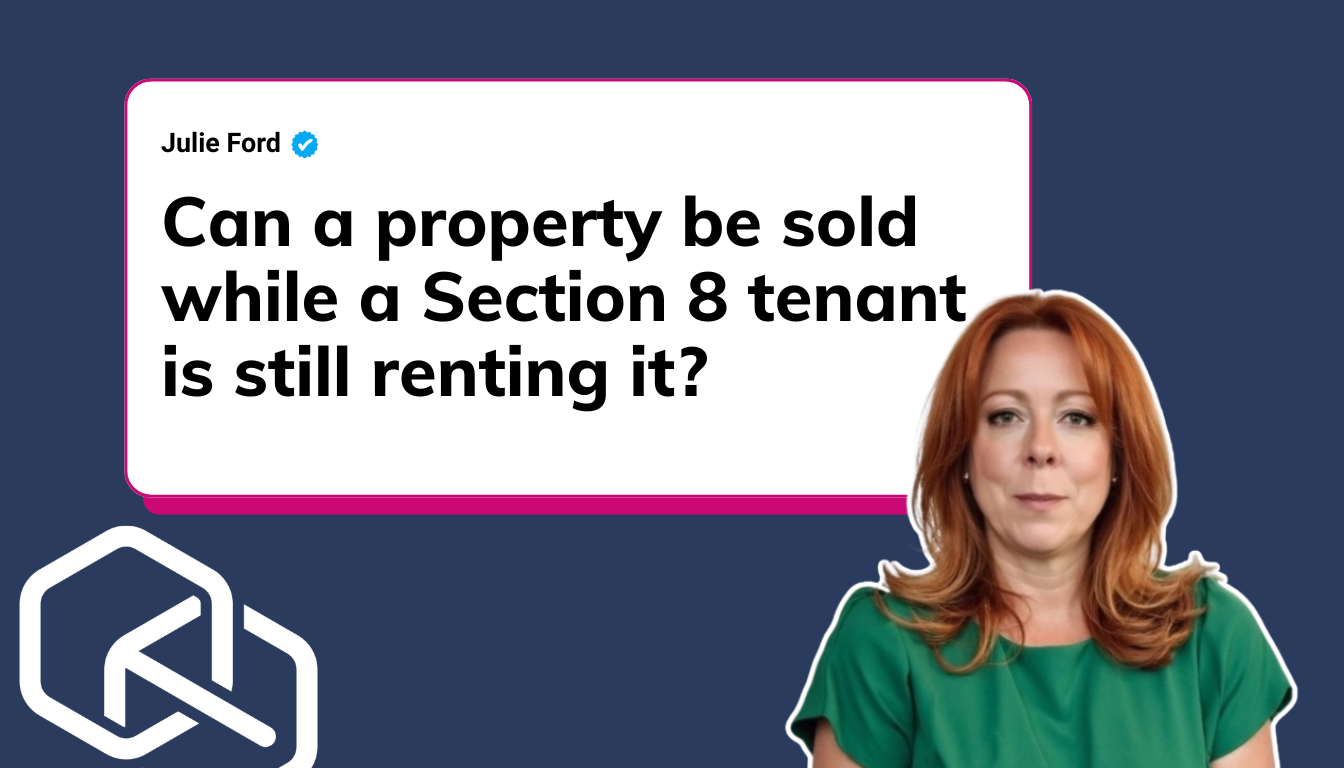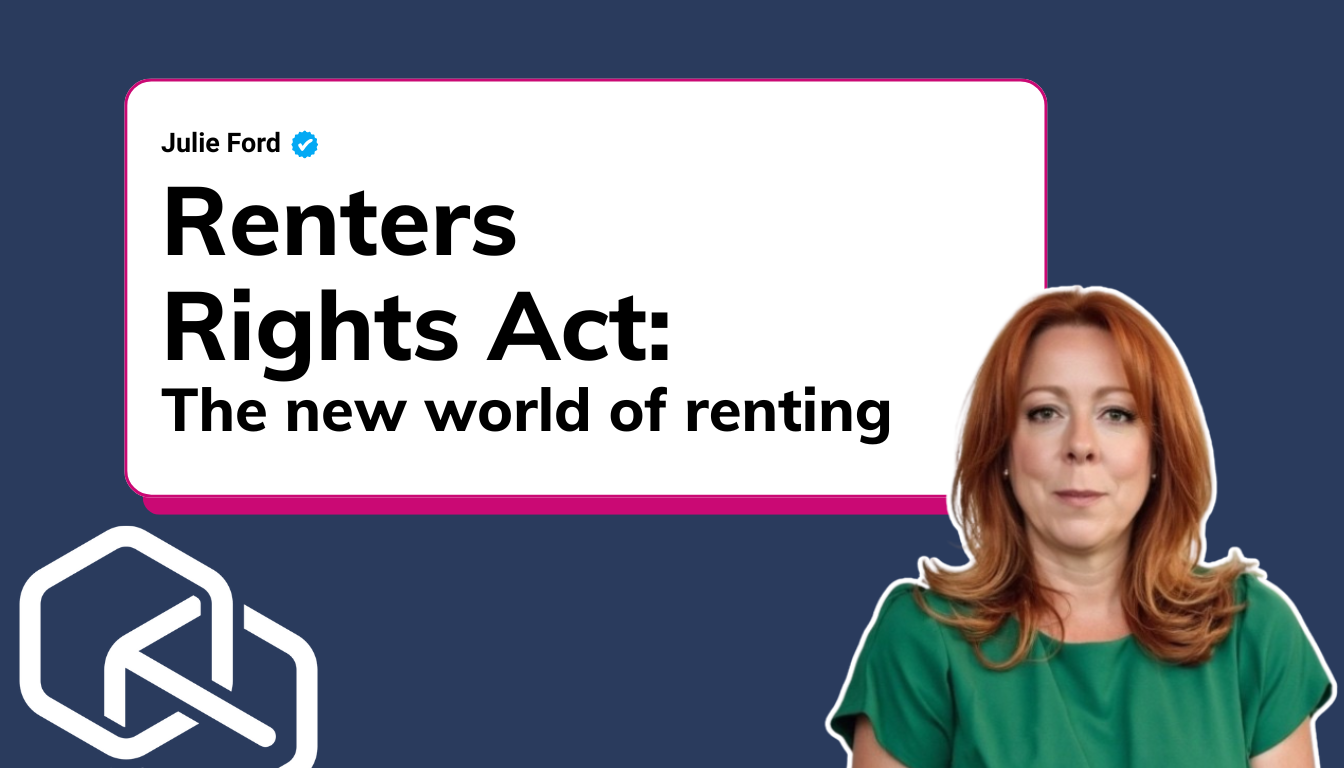Understanding the Basics of Renters Rights Bill 2025
The Renters Rights Bill of 2025 is a significant piece of legislation aimed at improving the conditions and rights of tenants across various states. For landlords, it’s essential to grasp the core concepts outlined in this bill to ensure smooth rental operations.
This bill sets forth a series of rights designed to protect tenants while also delineating new responsibilities for landlords. Understanding these elements not only helps landlords comply with the law but also fosters a more respectful and reliable landlord-tenant relationship.
Key Changes in the 2025 Bill
One of the most notable changes in the 2025 Renters Rights Bill includes stricter regulations on rent increases. Landlords must now provide more substantial notice periods and justify any increase based on market rates or increased property costs.
Another significant amendment is the increased importance of documentation. Landlords are now required to maintain more detailed records of all communications with tenants regarding payments, repairs, and notices. Failure to comply with these documentation requirements can lead to complications during disputes.
The Importance of Knowing Renters Rights as a Landlord
For landlords, understanding the renters’ rights is not just about compliance; it’s about enhancing the quality of service offered to tenants. A knowledgeable landlord can preemptively address issues and foster a positive tenancy atmosphere.
Moreover, knowing the rights enshrined in this bill can ensure that landlords avoid potential legal battles. Being well-informed reduces the likelihood of unintentional violations and the stress that often accompanies them.
Additionally, the bill emphasizes the importance of timely repairs and maintenance. Landlords are now mandated to respond to repair requests within a specified timeframe, ensuring that tenants live in safe and habitable conditions. This not only protects tenants but also helps landlords maintain the value of their properties by preventing minor issues from escalating into major problems.
Furthermore, the bill introduces provisions for tenant education, requiring landlords to provide resources that inform tenants of their rights and responsibilities. This initiative aims to empower tenants, enabling them to advocate for themselves while also fostering a collaborative environment where both parties can thrive. By promoting transparency and understanding, landlords can build stronger, more trusting relationships with their tenants, ultimately benefiting everyone involved.
Detailed Breakdown of Renters Rights Bill 2025
The Renters Rights Bill 2025 is comprehensive, covering numerous aspects of the landlord-tenant relationship. Understanding these specifics is crucial for landlords wishing to stay ahead of the game.
Rights Concerning Rent and Fees
Under the 2025 Bill, tenants have clearly defined rights relating to the payment of rent and additional fees. For instance, landlords must disclose all fees upfront, ensuring transparency in their communication with tenants.
Furthermore, the bill sets forth guidelines regarding late fees, stating they can only be applied under specific conditions and must be reasonable in amount. This level of clarity helps to avoid misunderstandings and disputes regarding payments. Additionally, the legislation mandates that landlords provide tenants with a detailed breakdown of any fees charged, including maintenance costs and service fees, which fosters a more trusting relationship between landlords and tenants.
Rights Related to Property Maintenance and Repairs
Tenant rights concerning property maintenance are emphasized in the 2025 Bill. Landlords are now obligated to address maintenance requests promptly and ensure that properties meet basic habitability standards.
This clause benefits tenants by guaranteeing a safe living environment and reinforces the landlord’s duty to maintain their properties effectively. In cases of disputes, clearly outlined responsibilities help mitigate potential legal repercussions for landlords. Moreover, the bill encourages landlords to implement regular property inspections, allowing them to identify and address maintenance issues proactively, thus preventing larger problems from arising and ensuring tenant satisfaction.
Rights Regarding Lease Termination and Eviction
The Renters Rights Bill specifies the proper procedures for lease termination and eviction. Landlords must provide valid reasons and follow a structured process to evict a tenant, reducing the risk of wrongful eviction claims.
This structured approach not only protects tenants but also interns landlords to act within the legal framework, ensuring orderly transitions when a tenant leaves. Additionally, the bill introduces a mandatory mediation process for disputes related to lease termination, encouraging both parties to reach amicable solutions before resorting to eviction. This not only alleviates the burden on the court system but also promotes a more collaborative environment between landlords and tenants, potentially leading to better long-term relationships.
How the Renters Rights Bill 2025 Affects Landlords
The 2025 Bill brings about significant changes that directly impact the responsibilities of landlords. Understanding these shifts can help landlords adapt to the new norms without unnecessary conflict.
New Responsibilities for Landlords
With the Renters Rights Bill comes a wave of new responsibilities aimed at ensuring tenant well-being and fostering a more equitable renting environment. Landlords must now invest more time and resources into procedures for maintenance and communication.
This includes actively monitoring property conditions and responding to tenant requests quickly. Failure to adhere to these new responsibilities can lead to penalties or even lawsuits, making compliance paramount.
Additionally, landlords are now required to provide tenants with clear information about their rights and the procedures for addressing grievances. This transparency is intended to empower tenants and create an open line of communication, which can ultimately lead to a more harmonious landlord-tenant relationship. Landlords may need to develop new systems for documenting interactions and requests to ensure they are meeting these obligations effectively.
Potential Legal Implications for Non-Compliance
Non-compliance with the Renters Rights Bill can have severe consequences for landlords. The law outlines hefty fines and potential litigation for landlords who fail to uphold tenant rights as defined in the bill.
Moreover, a damaged reputation can lead to difficulty in acquiring tenants in the future. Thus, landlords should be proactive in understanding and complying with the bill to avoid these pitfalls.
Furthermore, the bill introduces a framework for tenants to report violations anonymously, which can increase the likelihood of landlords facing scrutiny. This means that landlords must not only be vigilant in their compliance but also in fostering a positive relationship with their tenants. Engaging in regular check-ins and maintaining an approachable demeanor can help landlords mitigate risks and foster a more cooperative renting environment, ultimately benefiting both parties involved.
Preparing for the Renters Rights Bill 2025 as a Landlord
Preparation is key for landlords looking to adapt to the changes imposed by the Renters Rights Bill 2025. Here are some essential steps landlords can take to ensure compliance and comfort in the new renting environment.
Steps to Ensure Compliance
- Review the tenants’ rights and responsibilities outlined in the 2025 Bill.
- Update your rental agreements to reflect new regulations.
- Invest in property management training focused on tenant rights.
- Establish a clear system for maintaining and documenting communication with tenants.
Resources for Landlords to Stay Informed
Continued education is vital for landlords. Numerous resources can help landlords stay updated on the latest laws and best practices, including:
- Online webinars and courses about renters’ rights
- Local landlord associations that provide training
- Legal consultation for landlords
Utilizing these resources can help landlords remain compliant and informed, ensuring a seamless renting experience.
Moreover, networking with other landlords can provide invaluable insights and shared experiences that can help navigate the complexities of the new regulations. Joining online forums or local meetups can foster a sense of community and support, allowing landlords to exchange tips on best practices and effective strategies for managing their properties under the new law. Additionally, staying connected with real estate professionals, such as agents and property managers, can offer further guidance on market trends and tenant expectations, which are likely to evolve alongside the new legislation.
Landlords should also consider implementing technology solutions that streamline property management tasks. Software designed for landlords can help track lease agreements, manage maintenance requests, and ensure timely communication with tenants. By embracing these tools, landlords not only enhance their operational efficiency but also demonstrate a commitment to providing a positive renting experience, which can lead to higher tenant satisfaction and retention rates in this changing landscape.
Frequently Asked Questions about Renters Rights Bill 2025
As with any significant legislation, questions often arise. Here are some frequently asked questions about the Renters Rights Bill 2025 that may clarify concerns for landlords.
What If I Don’t Comply with the Bill?
Non-compliance with the Renters Rights Bill can lead to a range of consequences, including fines, legal claims, and damage to your reputation as a landlord. It’s crucial to familiarize yourself with the bill to avoid these repercussions. Additionally, repeated violations could result in more severe penalties, including the potential loss of your rental license, which would significantly impact your ability to operate as a landlord. Staying informed about compliance requirements is essential to maintaining a positive relationship with tenants and ensuring the longevity of your rental business.
Can I Still Increase Rent Under the New Bill?
Yes, landlords can still increase rent, but the process is now more regulated. You’ll need to provide sufficient notice and justification for any rent hikes under the 2025 Bill. This means that landlords should prepare to document their reasons for increases, which may include rising property taxes or maintenance costs. Furthermore, understanding the local market conditions can help you set reasonable rent increases that comply with the new regulations while still ensuring your property remains competitive.
How Does the Bill Affect Existing Leases?
Existing leases must comply with the new requirements after their renewal date. Landlords should communicate with their tenants about any anticipated changes and ensure that all lease agreements adhere to updated regulations moving forward. It is advisable to review existing leases in detail and discuss any modifications with tenants well in advance of renewal dates. This proactive approach not only fosters transparency but also helps build trust, which can lead to longer tenancies and reduced turnover costs.
Overall, understanding the Renters Rights Bill of 2025 will empower landlords to navigate this changing landscape effectively. By being well-informed and prepared, landlords can adapt to the new regulations while continuing to provide quality housing for their tenants. Moreover, engaging with local landlord associations or legal advisors can offer additional insights and support, ensuring that you remain compliant and informed about any future amendments to the law.
Streamline Your Property Management with COHO
As you adapt to the Renters Rights Bill of 2025, let COHO be your partner in navigating these changes with ease. Our innovative property management software is designed to help landlords manage HMOs, single-lets, student HMOs, and various rental portfolios efficiently. With COHO, you can bring together all aspects of property management into one seamless workflow, ensuring compliance with the new regulations while enhancing tenant satisfaction. Try COHO for Free today and experience the future of property management.
Understanding the Basics of Renters Rights Bill 2025
The Renters Rights Bill of 2025 is a significant piece of legislation aimed at improving the conditions and rights of tenants across various states. For landlords, it’s essential to grasp the core concepts outlined in this bill to ensure smooth rental operations.
This bill sets forth a series of rights designed to protect tenants while also delineating new responsibilities for landlords. Understanding these elements not only helps landlords comply with the law but also fosters a more respectful and reliable landlord-tenant relationship.
Key Changes in the 2025 Bill
One of the most notable changes in the 2025 Renters Rights Bill includes stricter regulations on rent increases. Landlords must now provide more substantial notice periods and justify any increase based on market rates or increased property costs.
Another significant amendment is the increased importance of documentation. Landlords are now required to maintain more detailed records of all communications with tenants regarding payments, repairs, and notices. Failure to comply with these documentation requirements can lead to complications during disputes.
The Importance of Knowing Renters Rights as a Landlord
For landlords, understanding the renters’ rights is not just about compliance; it’s about enhancing the quality of service offered to tenants. A knowledgeable landlord can preemptively address issues and foster a positive tenancy atmosphere.
Moreover, knowing the rights enshrined in this bill can ensure that landlords avoid potential legal battles. Being well-informed reduces the likelihood of unintentional violations and the stress that often accompanies them.
Additionally, the bill emphasizes the importance of timely repairs and maintenance. Landlords are now mandated to respond to repair requests within a specified timeframe, ensuring that tenants live in safe and habitable conditions. This not only protects tenants but also helps landlords maintain the value of their properties by preventing minor issues from escalating into major problems.
Furthermore, the bill introduces provisions for tenant education, requiring landlords to provide resources that inform tenants of their rights and responsibilities. This initiative aims to empower tenants, enabling them to advocate for themselves while also fostering a collaborative environment where both parties can thrive. By promoting transparency and understanding, landlords can build stronger, more trusting relationships with their tenants, ultimately benefiting everyone involved.
Detailed Breakdown of Renters Rights Bill 2025
The Renters Rights Bill 2025 is comprehensive, covering numerous aspects of the landlord-tenant relationship. Understanding these specifics is crucial for landlords wishing to stay ahead of the game.
Rights Concerning Rent and Fees
Under the 2025 Bill, tenants have clearly defined rights relating to the payment of rent and additional fees. For instance, landlords must disclose all fees upfront, ensuring transparency in their communication with tenants.
Furthermore, the bill sets forth guidelines regarding late fees, stating they can only be applied under specific conditions and must be reasonable in amount. This level of clarity helps to avoid misunderstandings and disputes regarding payments. Additionally, the legislation mandates that landlords provide tenants with a detailed breakdown of any fees charged, including maintenance costs and service fees, which fosters a more trusting relationship between landlords and tenants.
Rights Related to Property Maintenance and Repairs
Tenant rights concerning property maintenance are emphasized in the 2025 Bill. Landlords are now obligated to address maintenance requests promptly and ensure that properties meet basic habitability standards.
This clause benefits tenants by guaranteeing a safe living environment and reinforces the landlord’s duty to maintain their properties effectively. In cases of disputes, clearly outlined responsibilities help mitigate potential legal repercussions for landlords. Moreover, the bill encourages landlords to implement regular property inspections, allowing them to identify and address maintenance issues proactively, thus preventing larger problems from arising and ensuring tenant satisfaction.
Rights Regarding Lease Termination and Eviction
The Renters Rights Bill specifies the proper procedures for lease termination and eviction. Landlords must provide valid reasons and follow a structured process to evict a tenant, reducing the risk of wrongful eviction claims.
This structured approach not only protects tenants but also interns landlords to act within the legal framework, ensuring orderly transitions when a tenant leaves. Additionally, the bill introduces a mandatory mediation process for disputes related to lease termination, encouraging both parties to reach amicable solutions before resorting to eviction. This not only alleviates the burden on the court system but also promotes a more collaborative environment between landlords and tenants, potentially leading to better long-term relationships.
How the Renters Rights Bill 2025 Affects Landlords
The 2025 Bill brings about significant changes that directly impact the responsibilities of landlords. Understanding these shifts can help landlords adapt to the new norms without unnecessary conflict.
New Responsibilities for Landlords
With the Renters Rights Bill comes a wave of new responsibilities aimed at ensuring tenant well-being and fostering a more equitable renting environment. Landlords must now invest more time and resources into procedures for maintenance and communication.
This includes actively monitoring property conditions and responding to tenant requests quickly. Failure to adhere to these new responsibilities can lead to penalties or even lawsuits, making compliance paramount.
Additionally, landlords are now required to provide tenants with clear information about their rights and the procedures for addressing grievances. This transparency is intended to empower tenants and create an open line of communication, which can ultimately lead to a more harmonious landlord-tenant relationship. Landlords may need to develop new systems for documenting interactions and requests to ensure they are meeting these obligations effectively.
Potential Legal Implications for Non-Compliance
Non-compliance with the Renters Rights Bill can have severe consequences for landlords. The law outlines hefty fines and potential litigation for landlords who fail to uphold tenant rights as defined in the bill.
Moreover, a damaged reputation can lead to difficulty in acquiring tenants in the future. Thus, landlords should be proactive in understanding and complying with the bill to avoid these pitfalls.
Furthermore, the bill introduces a framework for tenants to report violations anonymously, which can increase the likelihood of landlords facing scrutiny. This means that landlords must not only be vigilant in their compliance but also in fostering a positive relationship with their tenants. Engaging in regular check-ins and maintaining an approachable demeanor can help landlords mitigate risks and foster a more cooperative renting environment, ultimately benefiting both parties involved.
Preparing for the Renters Rights Bill 2025 as a Landlord
Preparation is key for landlords looking to adapt to the changes imposed by the Renters Rights Bill 2025. Here are some essential steps landlords can take to ensure compliance and comfort in the new renting environment.
Steps to Ensure Compliance
- Review the tenants’ rights and responsibilities outlined in the 2025 Bill.
- Update your rental agreements to reflect new regulations.
- Invest in property management training focused on tenant rights.
- Establish a clear system for maintaining and documenting communication with tenants.
Resources for Landlords to Stay Informed
Continued education is vital for landlords. Numerous resources can help landlords stay updated on the latest laws and best practices, including:
- Online webinars and courses about renters’ rights
- Local landlord associations that provide training
- Legal consultation for landlords
Utilizing these resources can help landlords remain compliant and informed, ensuring a seamless renting experience.
Moreover, networking with other landlords can provide invaluable insights and shared experiences that can help navigate the complexities of the new regulations. Joining online forums or local meetups can foster a sense of community and support, allowing landlords to exchange tips on best practices and effective strategies for managing their properties under the new law. Additionally, staying connected with real estate professionals, such as agents and property managers, can offer further guidance on market trends and tenant expectations, which are likely to evolve alongside the new legislation.
Landlords should also consider implementing technology solutions that streamline property management tasks. Software designed for landlords can help track lease agreements, manage maintenance requests, and ensure timely communication with tenants. By embracing these tools, landlords not only enhance their operational efficiency but also demonstrate a commitment to providing a positive renting experience, which can lead to higher tenant satisfaction and retention rates in this changing landscape.
Frequently Asked Questions about Renters Rights Bill 2025
As with any significant legislation, questions often arise. Here are some frequently asked questions about the Renters Rights Bill 2025 that may clarify concerns for landlords.
What If I Don’t Comply with the Bill?
Non-compliance with the Renters Rights Bill can lead to a range of consequences, including fines, legal claims, and damage to your reputation as a landlord. It’s crucial to familiarize yourself with the bill to avoid these repercussions. Additionally, repeated violations could result in more severe penalties, including the potential loss of your rental license, which would significantly impact your ability to operate as a landlord. Staying informed about compliance requirements is essential to maintaining a positive relationship with tenants and ensuring the longevity of your rental business.
Can I Still Increase Rent Under the New Bill?
Yes, landlords can still increase rent, but the process is now more regulated. You’ll need to provide sufficient notice and justification for any rent hikes under the 2025 Bill. This means that landlords should prepare to document their reasons for increases, which may include rising property taxes or maintenance costs. Furthermore, understanding the local market conditions can help you set reasonable rent increases that comply with the new regulations while still ensuring your property remains competitive.
How Does the Bill Affect Existing Leases?
Existing leases must comply with the new requirements after their renewal date. Landlords should communicate with their tenants about any anticipated changes and ensure that all lease agreements adhere to updated regulations moving forward. It is advisable to review existing leases in detail and discuss any modifications with tenants well in advance of renewal dates. This proactive approach not only fosters transparency but also helps build trust, which can lead to longer tenancies and reduced turnover costs.
Overall, understanding the Renters Rights Bill of 2025 will empower landlords to navigate this changing landscape effectively. By being well-informed and prepared, landlords can adapt to the new regulations while continuing to provide quality housing for their tenants. Moreover, engaging with local landlord associations or legal advisors can offer additional insights and support, ensuring that you remain compliant and informed about any future amendments to the law.
Streamline Your Property Management with COHO
As you adapt to the Renters Rights Bill of 2025, let COHO be your partner in navigating these changes with ease. Our innovative property management software is designed to help landlords manage HMOs, single-lets, student HMOs, and various rental portfolios efficiently. With COHO, you can bring together all aspects of property management into one seamless workflow, ensuring compliance with the new regulations while enhancing tenant satisfaction. Try COHO for Free today and experience the future of property management.

